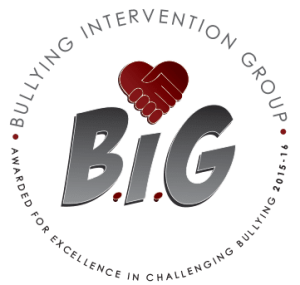At St Anne’s, we recognise that developing the spirituality of our pupils and adults is a key aspect of enabling pupils and adults to flourish.
Spirituality differs from person to person and is a personal experience. Being spiritual is not the same as being religious, a person can be spiritual without having a particular faith. Our school community is a group of people from different backgrounds coming together for the purpose of education. There is also a wonderful variety in family backgrounds too. Therefore, it is vital that spiritual development at St Anne’s must take in to account the varied circumstances and beliefs of staff and pupils.
Spirituality within the ethos of the daily life of the school
At St Anne’s C of E primary School, we view spiritual growth as becoming increasingly aware of one’s natural, innate spirituality. These opportunities happen throughout each and every day as children deal with delight, disappointment and the chance to be present with themselves.
For this reason, every member of the school community is familiar with the school’s shared language of spirituality and will respond to pupils appropriately.
We use a restorative approach to manage conflict in school. This supports the spiritual development of our pupils as it encourages them to evaluate situations from the viewpoint of others, discuss thoughts and feelings and take responsibility for their actions. This level of reflection encourages spiritual growth.
Children are encouraged and supported to learn about, discuss and debate themes of equality, diversity, inclusion and justice through the curriculum, worship and pupil voice groups. This helps to support their spiritual growth as they reflect on these themes throughout their time at St Anne’s.
The chaplaincy team organises prayer space days for us which provides the opportunity for the children to reflect on a wide range of topics.
Spirituality in Collective Worship
Collective worship is at the heart of daily life at St Anne’s. It is inclusive, invitational and inspirational. It provides a valuable opportunity for our school community to share experiences, ideas and understanding. It is the forum in which the language of spirituality is regularly and explicitly shared.
Collective worship provides an opportunity for pupils to become aware of the importance of reflection and how our life experiences can be formative and shape us as human beings. It provides a sense of being present and belonging.
Pupils are offered a place for hearing the Christian story. They are afforded the opportunity to participate in or observe spiritual practices such as prayer and reflection. Opportunities to reflect on the beauty and joy of the world are given. Pupils have time to reflect and empathise, to consider their responsibilities to others and to grow in love and service.
Collective worship is also a time of celebration. There is a celebration of accomplishments of those in our school community and in the wider world. We also celebrate Christian festivals and those in the calendars of other faiths.
Spirituality in Religious Education.
We follow the Durham Agreed Syllabus for the teaching of RE in school. RE is a subject which explores spiritual beliefs and how these can change and shape lives. RE affords children the opportunity to use what they learn about other people and their beliefs to reflect on their own experiences. Through this process, children can engage with bigger questions about purpose and meaning and begin to shape their own beliefs. RE allows children to engage with the idea of mystery or faith and questions with no clear answers.
How can pupils show their spiritual development?
Pupils spiritual development can be shown through:
Beliefs – The development of personal beliefs, including religious beliefs; an appreciation that people have individual and shared beliefs on which they base their lives; a developing understanding of how beliefs contribute to personal identity.
A sense of awe and wonder – being inspired by the natural world, mystery or human achievement. Developing enjoyment and fascination in learning about themselves, others and the world around them including the intangible.
Experiencing feelings of transcendence – feelings which may give rise to belief in the existence of a divine being or the belief that one’s inner resources provide the ability to rise above everyday experience.
Searching for meaning and purpose – Asking ‘why me?’ at times of hardship or suffering or success; reflecting on the origins and purpose of life; responding to challenging experiences of life.
Self knowledge – an awareness of oneself in terms of thoughts, feelings, emotions, responsibilities and experiences; a growing understanding and acceptance of individual identity; the development of self-respect.
Relationships – recognising, respecting and valuing the worth of each individual; developing a sense of community; the ability to build and nurture relationships with others.
Creativity – exercising the imagination, inspiration, intuition and insight.
Feelings and emotions – The sense of being moved by beauty or kindness; hurt by injustice or aggression; a growing awareness of why it is important to use feelings as a source of growth.




















